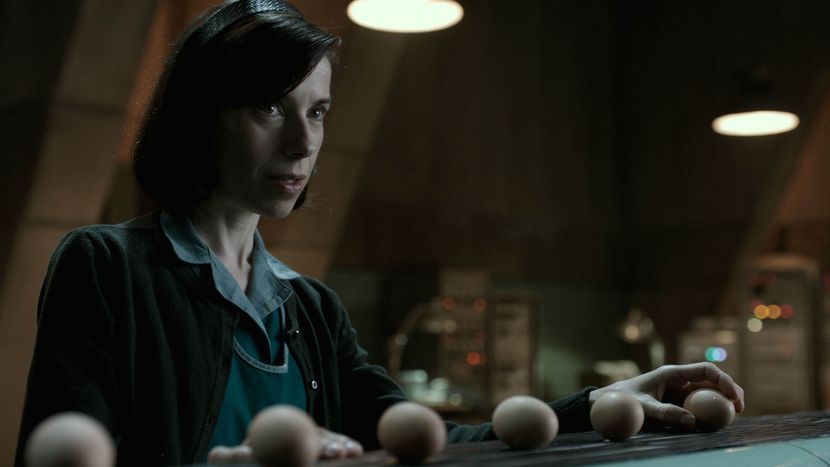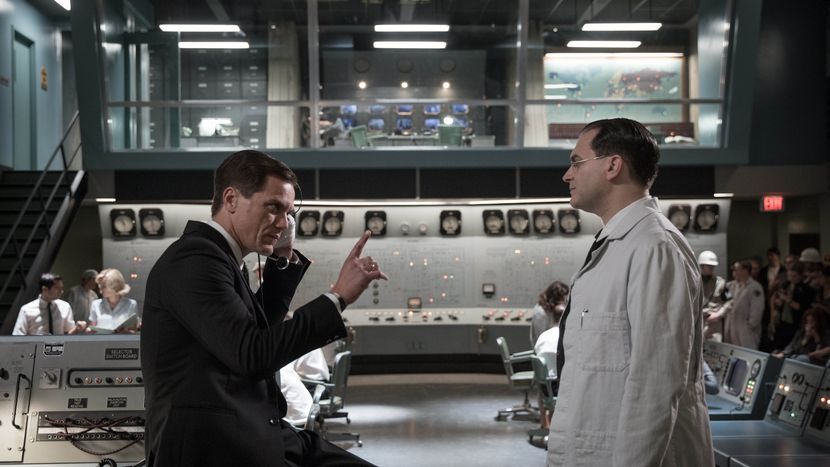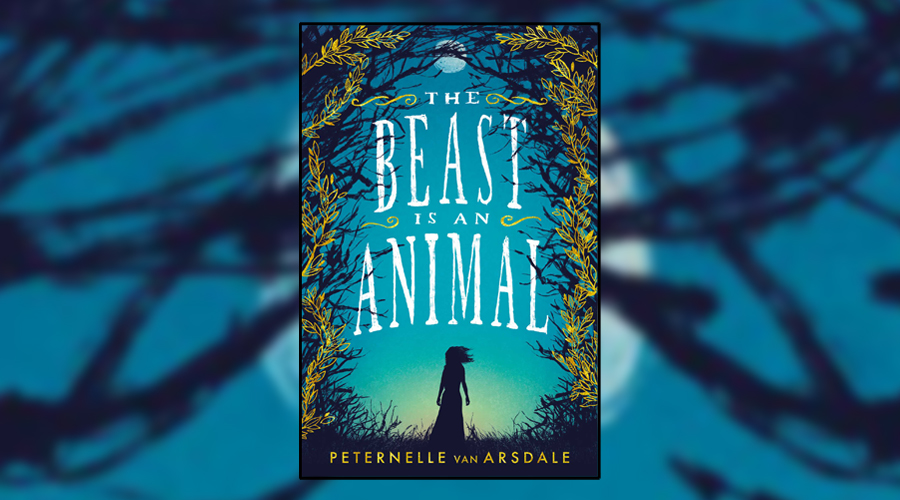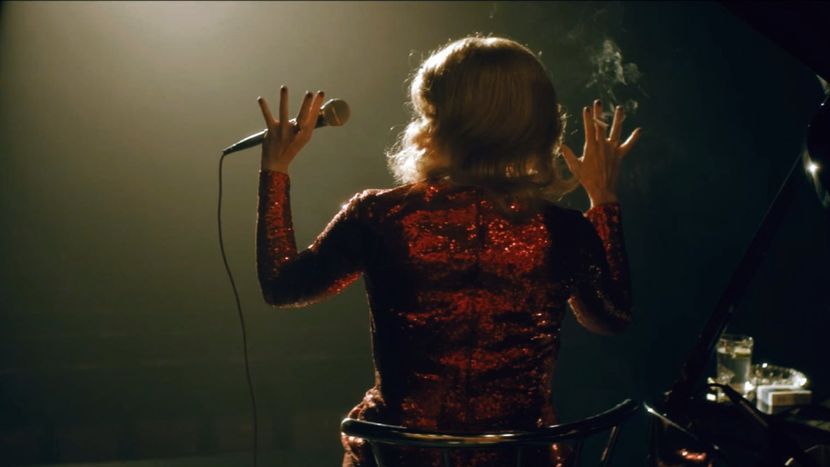The Shape of Water – BFI London Film Festival Review

Every Scooby Doo episode reveals that the terrifying monster was human after all. It’s a profound piece of storytelling hidden inside a children’s cartoon; humanity is the biggest monster. Director Guillermo del Toro has threaded this message throughout most of his filmography, and The Shape of Water, his best film since Pan’s Labyrinth, rows forward with a progressive message of tolerance, as Eliza (Sally Hawkins) falls in love with the Amphibian Man (Doug Jones, going full Boris Karloff).
Opening with an eerie tracking shot through a drowned apartment, del Toro establishes The Shape of Water’s fairytale ambitions. As Richard Jenkins’ voiceover says, there is a princess, a prince and the monster who tries stopping their union. Del Toro is quite open about his influences, overtly homaging Beauty and the Beast, the old Universal monster movies, and the romanticism of a golden age musical.
Some directors would settle for mollycoddling the audience with this type of familiarity, for making a movie that is no more than a sum of its homages, but del Toro is rarely straightforward. His decidedly adult fairytale is imbued in subtext. Michael Shannon’s men’s rights activist personifies toxic white masculinity, belittling everyone. He makes racist remarks towards Zelda (Octavia Spencer), Eliza’s work buddy, and when he starts interrogating the secret US facility he controls, he dismisses them as “the help”. Even if Shannon is swaggering through beats familiar to him, he is a perfect obstacle to Eliza’s relationship with the sea creature. He is the Gaston to her Beauty. With Shannon’s villain and the diversity of Eliza’s rag-tag team – a disabled person, a black woman, a gay man and a monster – del Toro layers on a progressive message. This is a film about accepting your differences and working together regardless. His refreshing frankness towards female sexual desire and sex in general symbolises this, letting the director create an interracial romance for the ages. Del Toro has faith in his spellbinding story and he trusts his actors to do their jobs well enough to make everything believable.
With Shannon’s villain and the diversity of Eliza’s rag-tag team – a disabled person, a black woman, a gay man and a monster – del Toro layers on a progressive message. This is a film about accepting your differences and working together regardless. His refreshing frankness towards female sexual desire and sex in general symbolises this, letting the director create an interracial romance for the ages. Del Toro has faith in his spellbinding story and he trusts his actors to do their jobs well enough to make everything believable.
Luckily for him, Hawkins sells the romance between herself and the monster by only using her expressive face. As he is layered in prosthetic wizardry, Jones is limited to contorting his body, leaving Hawkins to do most of the heavy lifting. She succeeds in making us believe as quickly as we do that they are star-crossed lovers separated by oceans who finally meet each other.
The remaining members of their group, Zelda, and Giles (Richard Jenkins), Eliza’s avuncular neighbour, buoy Hawkins’ performance. Spencer, who is seemingly trapped playing the sarcastic black female supporting character, deliciously brings Zelda to life, lending the character a world-weariness that contrasts the ingénue, Eliza. Jenkins is silently heartbreaking as a man who can’t find love and isn’t accepted by society, and he understands that his character’s tendency to be hyper-verbal masks his anxiety. Sadly, Jenkins is given a subplot that feels tangential to the main narrative, a small slip up in del Toro and Vanessa Taylor’s otherwise smart script.
Surprisingly, Spencer and Jenkins bring a lot of humour to the table, complimenting del Toro’s off-kilter sensibilities. A gag with a cat and Jenkins’ subsequent reaction will bring the house down. If anything, The Shape of Water feels like pure cinema. It is sweepingly romantic, filled with tense set pieces like the expertly staged prison break, and it is brave enough to not sink its anti-establishment message.
★★★★


